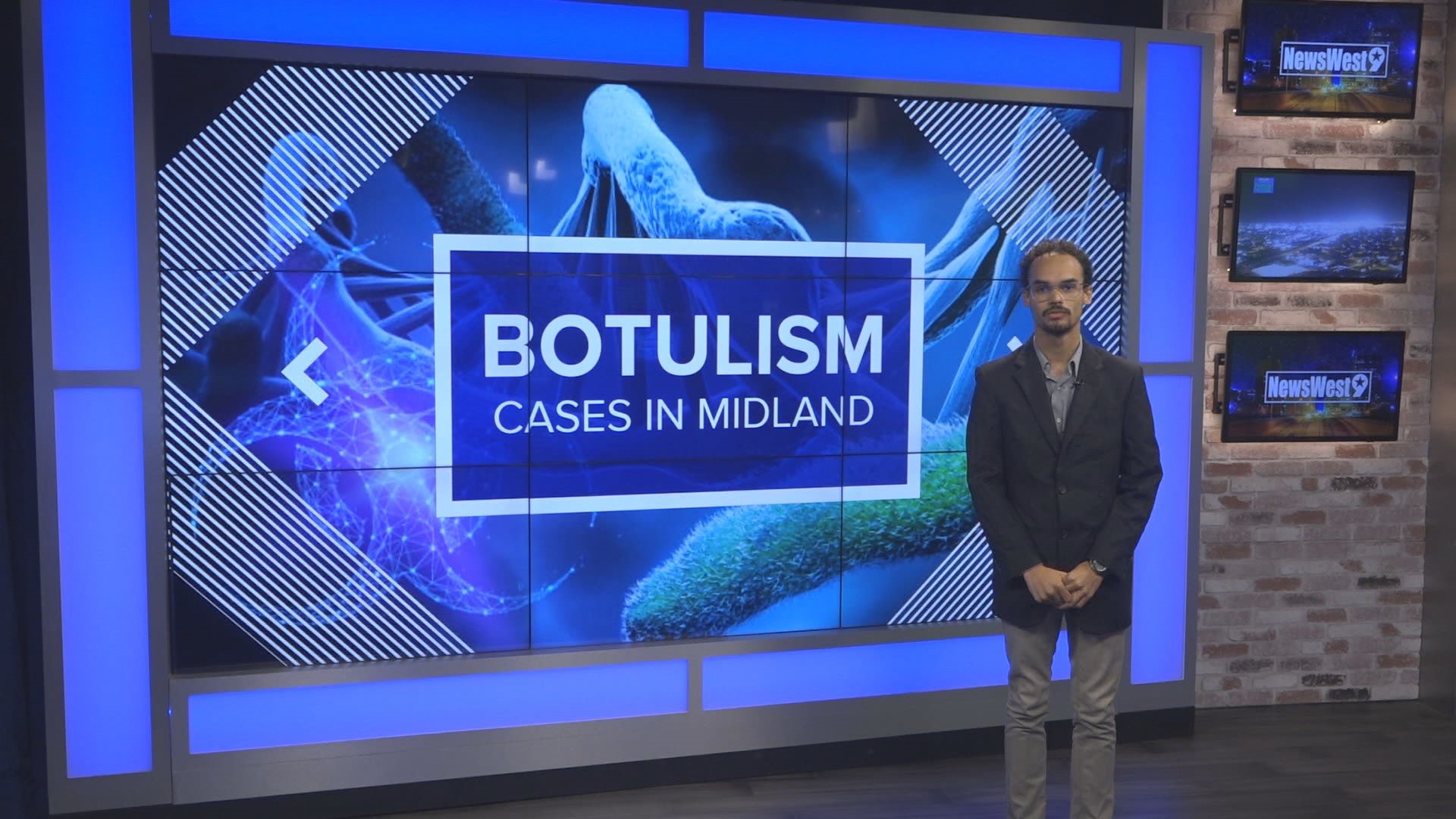MIDLAND, Texas — The Midland Health Department said three infants within the last six months were diagnosed with rare infant botulism, a toxin caused by bacteria in the soil that attacks the body's nerves.
All of these infants, younger than six months old, lived in an unnamed northwest Midland neighborhood at the time, according to Midland Health.
The illness is so rare that in the state of Texas there have been only four cases reported in 2024.
Of those four, two of them are right in that Midland neighborhood.
The first case reported was back in August 2023. The second was reported in January 2024 and the third was in February 2024.
"Botulism is a bacteria that lives in the soil," Midland Health Epidemiologist Tyler Collins said. "It produces spores that if ingested by infants who don't have the gut bacteria built up to combat it can cause toxins to grow and can cause serious problems. It can also grow in improperly canned or preserved food, leading to people to ingest those toxins that are growing in those jars or cans and then getting sick. And so that's foodborne botulism, that's typically associated with adults."
Professionals have ruled out the possibility of the contraction being foodborne, however.
Midland Health also mentioned how it might happen when infants eat honey, which contains the spores. According to Midland Health, eating honey has been ruled out in these cases.
"We believe it to be an environmental source," Collins said. "So it could be due to dusty air, dirty air, could be a pacifier dropped in the dirt and then put in a child's mouth. It could be dirty hands, handling a bottle that a child then feeds upon. All of those we would consider 'environmental source' because it's contact with the dirt, the soil that the infant is getting the toxin from."
One thing might stand out in this data: of all places, why is that Midland neighborhood the home of half the cases in Texas this year? The Midland Health Department doesn't have an answer to that quite yet. It's something them and the state are monitoring.
Midland Health said even though they all were in the same area, they don't believe the cases are connected and caused by a common exposure.
Midland Health does believe the source is environmental, but it's still something they're investigating. According to Midland Health, they don't typically do environmental testing since the bacteria is common in a natural environment. Detecting it isn't a sure-fire method that indicates the source of exposure.
While this illness is rare...
"Most infants don't get it," Collins said. "It's something to be aware of, but it's not something that most infants have to deal with."
Parents can never be too careful though.
Midland Health said don't feed your children honey, especially if they're under a year old. Gardeners should wash their hands before feeding their child. If it's a dusty or windy day, try to stay inside just to be safe.
Here are some symptoms to look out for:
- Constipation
- Poor feeding
- Drooping eyelids
- Weak cry
- Sluggish reactive pupils
- Poor head control
- Breathing difficulty
All three infants have been released from hospital care at this time.
As soon as Midland Health is done with investigating the rest of the cases, NewsWest 9 will continue to keep everyone updated.
Watch the full press conference with the Midland Health Department here:

